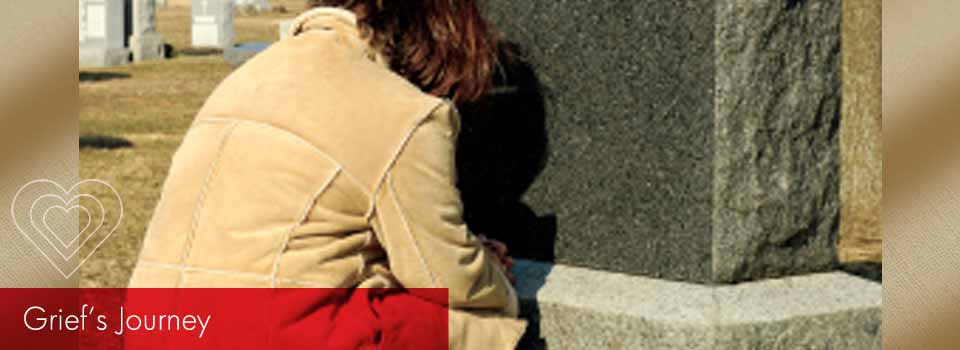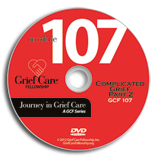
Preview of Module 107
 In our continuing Journey of Grief, Module 107 reviews several manifestations of unresolved grief. Complicated grief is not just one form of grief; it usually encompasses several dimensions of complicated grieving.
In our continuing Journey of Grief, Module 107 reviews several manifestations of unresolved grief. Complicated grief is not just one form of grief; it usually encompasses several dimensions of complicated grieving.
Session 1 – Unresolved Grief and Bargaining Grief
Unresolved grief is the result of not dealing with the grief journey. Not dealing with grief in a healthy manner results in complicated grief. It is as though the griever continues to live in the past. Bargaining grief can be very subtle and not easily recognizable. It wants to “live in the past” and “dream of the future.”
Cindy Barber’s grief journey was complicated by the death of her infant son, followed years later by the unexpected death of her dad and then the death of her mom by cancer. Cindy’s testimony reveals the insensitivity of the doctor at the death of her infant son. Her dad spent
many short terms on the mission field building churches and then was diagnosed with an inoperable tumor. In her expectation of her dad’s death Cindy recalls her bargaining process, only to have her dad die. Then a few years later her mom died of cancer. This testimony is a tribute to the grace of God in the life of the griever.
Following Cindy’s testimony is Courtney Roy’s memories of her husband dying just three weeks after their marriage. Courtney shares how her husband took ill on their honeymoon, and upon returning home he was admitted to a hospital. She recollects the roller coaster ride as she listened to medical teams explain the illness, offer alternative treatments and then her husband succumbing to the illness.
Session 2 – Exaggerated Grief and Toxic Grief
Exaggerated grief is the griever’s inability to deal with present reality. This form of grief maintains a physical “lasting memorial” to their loved one. Toxic grief results when a griever is held “hostage” to the emotions of another griever.
Session 3 – Addictive Grief and Depressive Grief
Addictive grief is a self-imposed grief process when the griever allows their grief to control their life, just like any addiction. The griever cannot break the pattern of grieving. Depressive grief is the result of grief that does not heal.


